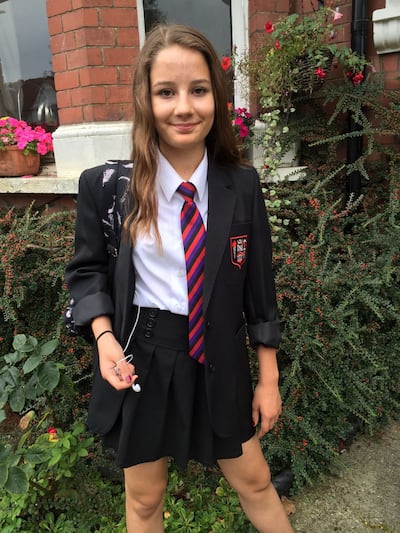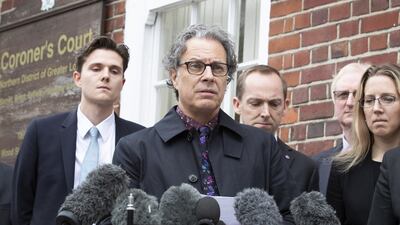Social media giants have been told to “step up” and “get a moral compass” by British authorities after an inquest into the death of a teenager who died after watching harmful online content.
The Children's Commissioner, Dame Rachel de Souza, said that that platforms such as Instagram and Pinterest need to “do more and be better” after a senior coroner concluded schoolgirl Molly Russell died from “negative effects of online content”.
Molly, from Harrow in north-west London, died in November 2017, prompting her family to campaign for better internet safety.
Ms de Souza said she wanted the Online Safety Bill to be implemented to “enshrine children’s safety in law” and described the findings of the inquest as “harrowing”.
She added that “we know children are seeing these things across the country” and it was “deeply, deeply concerning”.
Coroner Andrew Walker said that online material viewed by the 14-year-old “was not safe” and “shouldn’t have been available for a child to see”.
Concluding it would not be “safe” to rule Molly’s cause of death was suicide, Mr Walker said the teenager “died from an act of self-harm” while suffering depression and the negative effects of online content.
In a conclusion at North London Coroner’s Court on Friday, he said: “Molly was at a transition period in her young life which made certain elements of communication difficult.”
He added the teenager was “exposed to material that may have influenced her in a negative way and, in addition, what had started as a depression had become a more serious depressive illness”.

The inquest heard how Molly accessed material from the “ghetto of the online world” before her death in November 2017, with her family arguing that sites such as Pinterest and Instagram recommended accounts or posts that “promoted” suicide and self-harm.
Meta executive Elizabeth Lagone said she believed posts which the Russell family argued “encouraged” suicide were safe when the teenager viewed them.
Pinterest’s Judson Hoffman told the inquest the site was “not safe” when Molly used it.
Commenting on Meta’s defence of some of the material viewed by Molly, where a senior executive said posts were safe because they were from people issuing a “cry for help”, Ms de Souza said: “It’s just not acceptable.
“It’s not acceptable to hear this from social media companies — and I’m not surprised to hear that argument put forward.
“Frankly, although they are attempting to make improvements they are not doing enough, and arguments like that I think are morally reprehensible and I want to see these companies step up and do more and be better.”
The inquest was told that out of 16,300 posts Molly saved, shared or liked on Instagram in the six-month period before her death, 2,100 were depression, self-harm or suicide-related.
The court was played 17 clips the teenager viewed on the site — prompting “the greatest of warning” from the coroner.
The inquest also heard details of emails sent to Molly by Pinterest, with headings such as “10 depression pins you might like” and “new ideas for you in depression”.
The coroner said on Thursday he intended to issue a Prevention of Future Deaths (PFD) notice which will recommend actions on how to prevent a repeat of the Molly Russell case.
The Russell family’s lawyer, Oliver Sanders KC, asked the coroner to send the PFD to Instagram, Pinterest, media regulator Ofcom and the Department for Digital, Culture, Media and Sport.


